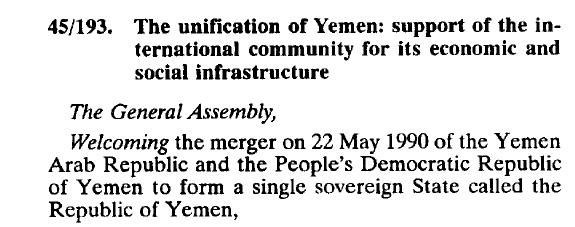North and South Yemen (YAR and PDRY) merged in the same year as Germany (1990).
And they both had UN seats until then (PDRY since 1967; YAR [as a Kingdom initially] since 1947--I'm not 100% when/if the Kingdom's seat was transferred to YAR's government, but I presume it was at some point.)
And at least this (1990 Yemeni) unification was explicitly welcomed by the UNGA in resolution 45/193, adopted on Dec 21, 1990.

The main purpose of the resolution (in the remainder) was to solicit economic aid for the unified Yemen.
So yes, there are even examples of the UNGA explicitly welcoming mergers of two states.
(The US had the PDRY on its list of terrorist states until the end, so that made it more difficult for the West to send aid there, I guess. Which might in part explain the resolution.)
Note that unlike in the case of Germany, the two Yemens had fought two border wars, although the unification was peaceful. There's a good backgrounder here by a IR prof which additional says that "unlike Germany, Yemen was a true union of equals [...] When the union occurred, they [both YAR and PDRY] both formally ceased to exist [and] an entirely new state came into being". Unlike Germany, the new/unified Yemeni state adopted a new constitution (drafted in late 1989). Despite the "new state" status (they themselves perceived), the new Republic of Yemen was not required to reapply to the UN for membership. The date of UN admission of the RoY was put back to 1947 (that of the YAR/Kingdom), but the their UN rep kept was that of PDRY (whereas the US ambassador kept was that of the YAR).
